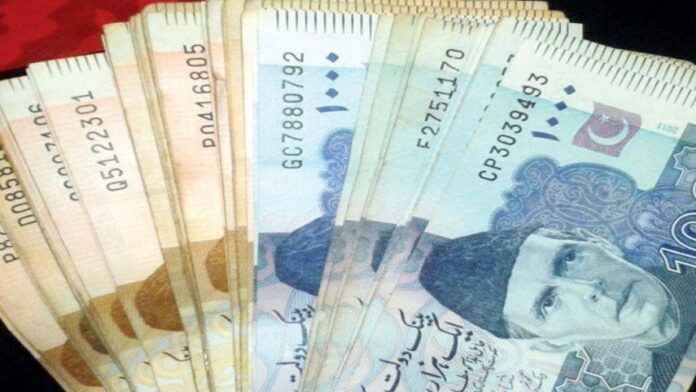KARACHI: The State Bank of Pakistan (SBP) on Monday left its policy rate unchanged at 15 per cent for the next two months to cool down the economy and control inflation.
“To cool the overheating economy and contain the current account deficit (CAD), the policy rate has been raised by a cumulative 800 basis points since last September, some temporary administrative steps have recently been taken to curtail imports, and strong fiscal consolidation is planned for FY23,” said the central bank in its Monetary Policy Statement.
With recent inflation developments in line with expectations, domestic demand beginning to moderate and the external position showing some improvement, the SBP felt that it was prudent to pause rate hikes at this stage, said the SBP.
Read also: Pakistan’s Mahaana wealth raises $2.1Mn in pre-seed funding round
The SBP said that the withdrawal of the subsidy package on energy will continue to manifest in inflation out-turns throughout the rest of the fiscal year—as well as momentum in the prices of essential food items and exchange rate weakness last month.
The central bank believes the expected inflow of $1.2bn from IMF will work as a catalyst for financing from multilateral and bilateral lenders.
The SBP confirmed that Pakistan has successfully secured an additional $4bn from friendly countries over and above its external financing needs in FY23.
On balance, the SBP noted that some greater slowdown in global growth would not be as harmful to Pakistan as for most other emerging economies, given the relatively small share of exports and foreign private inflows in the economy.
As a result, both inflation and the CAD should fall as global commodity prices ease, while growth would not be as badly affected, said the SBP.
The headline inflation is projected to peak in the first quarter before declining gradually through the rest of the fiscal year. Thereafter, it is expected to decline sharply and fall to the 5-7pc target range by the end of FY24, supported by the lagged effects of tight monetary and fiscal policies, the normalisation of global commodity prices, and beneficial base effects.
“As expected, economic activity has moderated since the last MPC. Most demand indicators have softened—sales of cement, POL, fertilisers and automobiles fell month-on-month in July—and year-on-year growth in LSM almost halved in June,” said the SBP.
Recent flooding caused by unusually heavy and prolonged monsoon rains creates downside risks for agricultural production, especially cotton and seasonal crops, and could weigh on growth this year.
“The SBP continues to expect growth to moderate to 3-4pc in FY23, on account of the tightening of fiscal and monetary policies,” it added.
The trade deficit halved to $2.7bn in July, imports fell sharply by 36.6pc (month-on-month) and 10.4pc (year-on-year) while exports also declined by 22.7pc month-on-month, it added.
Through administrative measures imports declined and the rupee gained due to diminished uncertainty about the IMF programme but the administrative measures are not sustainable and will need to be eased in the coming months, said the SBP.
It will be critical that the envisaged fiscal consolidation in FY23 is delivered and that strong measures are taken to curtail energy imports. Such measures include early closure of markets, reduced electricity use by residential and commercial customers, and greater encouragement of work from home and car pooling, said the SBP.
With the expected completion of the upcoming IMF review and the additional assistance secured from friendly countries, foreign exchange reserves are projected to rise to around $16bn during FY23, said the SBP, adding that to ensure this and to support the rupee, it will be important to contain the CAD to around 3pc of GDP by moderating domestic demand and energy imports.
The SBP said that for the first time in seven years, the FY23 budget targets a primary surplus, on the back of significantly higher tax revenue. It envisages a strong fiscal consolidation of around 3pc of GDP, which is appropriate to cool the economy and ensure a reduction in inflation and the CAD throughout the year.
Exporters and manufacturers
The manufacturers and exporters were extremely worried about high-interest rates that made the cost of doing business much higher making them uncompetitive on the global market.
“While we are not getting fresh orders from Europe and USA, the increasing cost of our products has made it more difficult to remain within the market,” said Amir Aziz, an exporter of readymade garments to Europe and the USA. “If we lose the market, it will be highly difficult to re-capture the market space currently we have,” he added.
Inflows from friendly countries
While meeting with brokerage analysts on Monday, SBP Acting Governor Murtaza Syed said Pakistan has arranged $4bn in financing from friendly countries.
“Pakistan will get $2bn from Qatar, $1bn from Saudi Arabia under the umbrella of deferred oil facility and $1bn investments from the UAE in various sectors,” he said.
Pakistan’s gross financing needs would be around $30bn for FY23 including the amount required for CAD and debt repayments.
He said the available financing against this is estimated at $37bn for FY23. The amount increased after Pakistan secured $4bn of financing from friendly countries.

